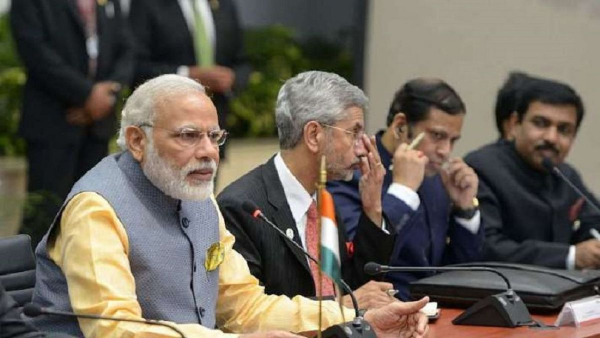India has drawn a detailed Plan of Action (PoA) to counter Pakistan on the issue of Kashmir at the United Nations Human Rights Council (UNHRC) session that begins Monday. The 42nd session of the UNHRC will take place on September 9-13 in Geneva.
Pakistan’s Foreign Minister Shah Mahmood Qureshi himself is leading the Pakistani delegation and is slated to speak on Tuesday in Geneva. Pakistan is all set to rake up the issue of Kashmir and the alleged human rights violations in Jammu and Kashmir.
India on its part will have a secretary level official leading the delegation. He would be assisted by India’s ambassador to the United Nations, Rajiv Kumar Chander and Ajay Bisaria, who was the Indian envoy to Pakistan till Islamabad downgraded ties and expelled him on August 5.
With Pakistan all set to move a resolution on Kashmir at the forum, India is prepared to present a counter offensive. The idea is not only to counter Pakistan’s move but also to put Islamabad on test regarding the human rights situation in Pakistan, situation of the minorities and concerns regarding blasphemy laws. India and human rights groups would also be raising the issue of violations in Pakistan Occupied Kashmir (PoK), Pakistan’s move to separate Gilgit-Baltistan from PoK and the human conditions there.
The Ministry of External Affairs (MEA) has engaged with all 47 member states of the UNHRC, including China. The European bloc constitutes an important part of the human rights proceedings and India has seen the highest level of engagements.
While External Affairs Minister S Jaishankar visited Hungary last month, there have been other leadership visits to the region, including the scheduled visit of President Ram Nath Kovind to Iceland, Switzerland and Slovenia on September 9-13.
While India hopes to get support from some of the member states from the European bloc such as Italy, Spain, Hungary, Bulgaria, Czech Republic; India is also engaging nations that are not current members of UNHRC but are great influencers in the region like Norway, Belgium and Netherlands.
Sources say, India expects support from Japan, Afghanistan, Bangladesh, Nepal, Egypt, South Africa, some other African nations, Australia, while it remains engaged with many others. The West Asian Muslim bloc is also very important. Saudi Arabia, UAE, Bahrain and Qatar are important votes for India.
This comes weeks after a closed-door consultation was held at the United Nations Security Council (UNSC) in New York where Pakistan failed to get a unanimous statement on the issue of abrogation of key provisions of Article 370. The one country that came out and sided with Pakistan was their all-weather friend China. But the pretext for opposing abrogation of Article 370 was that it affected India-China boundary question in Ladakh. Russia, France, US and UK have backed India in the consultations.
While the foreign offices of both sides have engaged the envoys of various nations in New Delhi and Islamabad, recently India’s National Security Advisor Ajit Doval held a special briefing for the South Asian nations barring Pakistan and for foreign journalists to apprise them of the internal situation in Kashmir and measures being taken to bring normalcy to the Valley.
India’s focus in Geneva will be to ensure maximum support for New Delhi during the procedural vote on Pakistan-sponsored debate on Kashmir at the UNHRC. Mere support in spirit will not do. Therefore, India is working all the lines to ensure minimum abstentions from quarters that support India.
Source:IT
Image Courtesy: NewsTrackEnglish
You may also like
-
IAF Aircraft Set Course For Exercise Eastern Bridge VII At Oman
-
India-us Working Together In Areas Like Critical Minerals, Supply Chains And Advanced Technologies: Shri Piyush Goyal
-
Defence Secretary to co-chair 5th India-Philippines Joint Defence Cooperation Committee meeting in Manila
-
2nd India-Japan Finance Dialogue held in Tokyo on 6th September, 2024
-
Prime Minister, Shri Narendra Modi welcomes Crown Prince of Abu Dhabi
